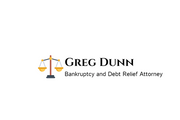How to Choose Between Chapter 7 & Chapter 13 Bankruptcy

When debt becomes unmanageable, there are two paths to relief and financial stability: Chapter 7 and Chapter 13 bankruptcy. While both types help filers regain control over their financial affairs, they each accomplish this goal differently. Below, learn about the distinctions between these options and how to determine which type is best suited to your situation.
Chapter 7
In Chapter 7 bankruptcy, the courts eliminate most unsecured debts, including credit card bills, medical expenses, and past-due rent and utility payments. One notable exception is student loans, which aren't dischargeable in bankruptcy. Additionally, through this option, property that the courts deem non-exempt can be sold to repay creditors. However, you’ll be able to keep certain assets that are essential to living and working.
 Chapter 7 is most appropriate if you have limited or no income and no realistic way to repay what you owe. To qualify for Chapter 7, you must pass a means tests, which confirms that your income is lower than the median income of a household of the same size.
Chapter 7 is most appropriate if you have limited or no income and no realistic way to repay what you owe. To qualify for Chapter 7, you must pass a means tests, which confirms that your income is lower than the median income of a household of the same size.
Chapter 13
Chapter 13 bankruptcy isn't debt elimination, but rather debt restructuring. Through this option, your outstanding balances are reorganized into a long-term repayment plan. In most cases, filers will have anywhere from three to five years to pay back what they owe through regular monthly payments. A filer can keep their property in Chapter 13 bankruptcy as long as they repay an amount equal to the value of their non-exempt assets as part of their repayment plan.
This type of bankruptcy is ideal for those who make too much to qualify for Chapter 7. It's also a practical debt relief option if your home is in danger of foreclosure. If you can continue to make monthly mortgage payments in addition to paying back what's past-due via the monthly bankruptcy plan, you can often retain ownership of the home.
Whether you’re looking to file Chapter 7 or Chapter 13 bankruptcy, contact Greg Dunn, Bankruptcy and Debt Relief Attorney today. This team has been serving the Honolulu, HI, area since 1996, offering bankruptcy representation for clients facing all manner of financial challenges. They’ll ensure you pursue the most helpful option, and they’ll be your ally at every step. Call (808) 524-4529 to schedule a consultation, or visit his office's website to explore your options in more detail.
About the Business
Have a question? Ask the experts!
Send your question

